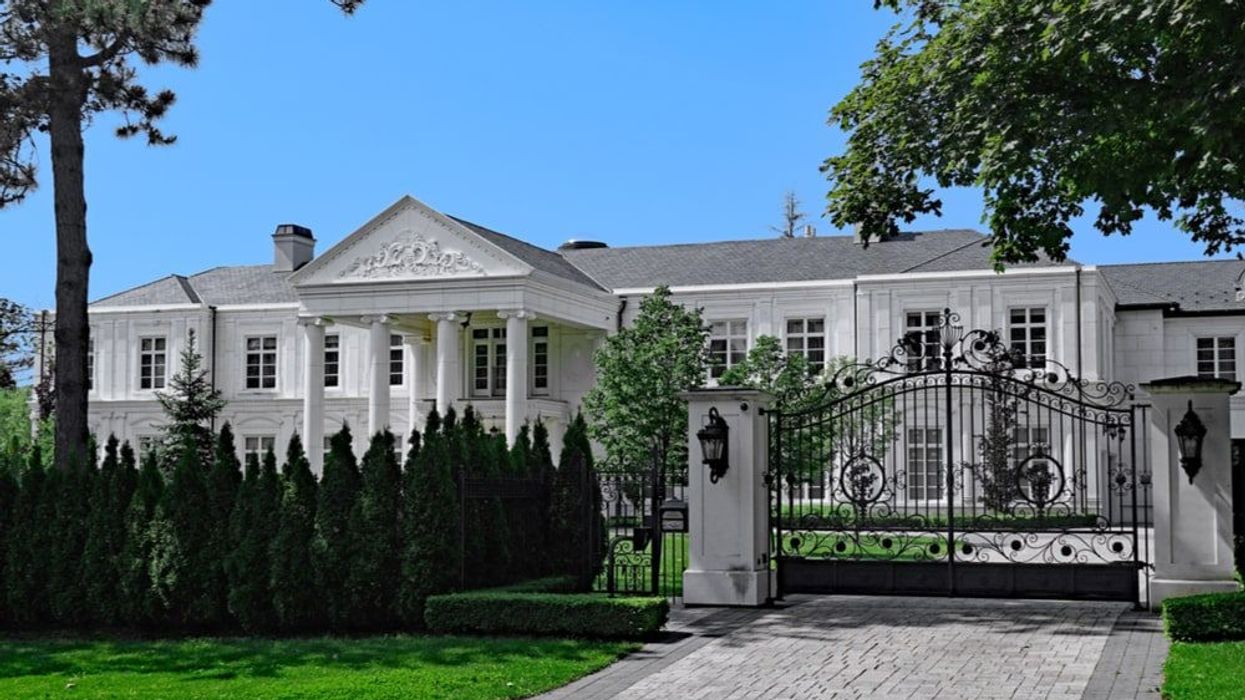Following two years of frenzied activity and soaring prices, 2022 brought a barrage of interest rate hikes, rising inflation, and a slew of tax and regulatory changes that introduced new post-pandemic benchmarks in Canada's luxury real estate market.
Although demand remained elevated in the second half of the year, sellers' heightened price expectations had yet to align with more balanced market conditions, says a new report from Sotheby's International Realty Canada.
As a result, supply dwindled and sales activity stalled in major markets across the country. Don Kottick, President and CEO of Sotheby’s International Realty Canada, tells STOREYS the decline in activity "was to be expected" following the record-setting years of 2020 and 2021.
According to data from Sotheby's International Realty Canada, sales over $4M in the Greater Toronto Area fell 24% year over year in 2022, while ultra-luxury sales over $10M declined 29% from 2021 levels. Residential sales over $1M posted an annual decline of 28%.
Broken down by housing type, sales of condominiums over $4M fell 29% year over year, attached homes declined 25%, and single-family homes fell 23%.
In Vancouver, where activity began to slip early in Q2 2022, residential sales over $4M ended the year 30% below 2021 levels, while sales over $10M were down 46%. Condos over $4M were relatively stable, experiencing a 3% year-over-year increase, but single-family sales declined 32%. Overall, sales over $1M were down 29% from the record volume seen in 2021.
Montreal’s luxury real estate market remained more balanced in comparison, with sales over $4M experiencing a 2% year-over-year increase. Sales over $1M declined 18% annually, with attached home sales down 23%, single-family home sales falling 22%, and condominium sales slipping 5%.
In contrast, Calgary's luxury real estate market outperformed Canada's larger cities, in part due to increased interprovincial migration. Sales over $1M jumped 16% year over year and sales over $4M increased 50% annually. Looking housing types, $1M-plus single-family home sales increased 12% from 2021 levels, attached home sales rose 68%, and condos jumped 79%.
"By the end of [2022], luxury housing segments in several major metropolitan areas were on the brink of buyers’ market conditions, while others had very clearly shifted into this territory," Kottick said.
"The market is now on the verge of another important adjustment, this time in terms of pricing. It has taken several months for home sellers to realize the impact of the changing market on the market values of their properties. As new property listings come onto the market in 2023, their pricing will shift to meet current realities. This will start to unlock long-awaited opportunities for buyers and upsizers to purchase homes that meet their lifestyle needs as they acclimatize to the market."
Although buyer demand is strong, Kottick said the luxury real estate market remains in a bit of a lull as people wait to see when the Bank of Canada will stop raising interest rates.
The next rate announcement is scheduled for January 25, with forecasts ranging from a 25-bps hike to a 50-bps hike. If the impending increase is the last of the cycle, Kottick believes normalcy will return to Canada's luxury real estate market by the spring.
"We've had nothing but an abnormal market over the last few years. I think people are looking forward to some form of normalization. I think that could happen in Q2, in time for the spring market," he told STOREYS. "Solid buyer demand, rising immigration, and a chronic undersupply of inventory will keep the luxury real estate market healthy in 2023."





















